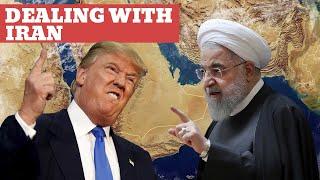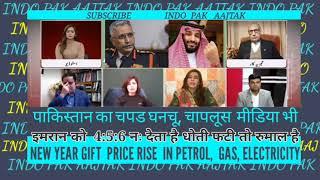How Pakistan Navigates the Saudi Arabia-Iran Rivalry
Описание
Soon after taking office last summer, the new Pakistani government led by Prime Minister Imran Khan confronted mounting economic challenges and the prospect of a balance of payments crisis. The government has delayed accepting an International Monetary Fund bailout and sought additional sources of financial assistance from Saudi Arabia and the United Arab Emirates, among others. Saudi Crown Prince Mohammad bin Salman recently visited Pakistan to finalize agreements on new projects in the energy sector and other areas, which solidified a $20 billion Saudi investment in Pakistan’s economy to match the scale of China, Islamabad’s principal ally. Pakistani military cooperation with Saudi Arabia has also remained strong, with the former Pakistani chief of army staff Raheel Sharif now heading a Saudi-sponsored military coalition.
The deepening relationship between Pakistan and the Gulf states comes at a period of high tension between Saudi Arabia and Iran, whose border with Pakistan has also been the site of periodic clashes and whose past efforts to launch a gas pipeline project linking the two countries remains stalled. A February 13th terrorist attacked, which killed 27 members of Iran’s Revolutionary Guard and was linked to Pakistani-based militants, only further escalated tensions between the two countries. While Prime Minister Khan has professed a desire to serve as a mediator between Saudi Arabia and Iran, Pakistan faces an increasingly challenging diplomatic balancing act.
Please join the U.S. Institute of Peace on Monday, March 11th from 1:00pm – 2:30pm for a conversation analyzing the current Pakistani government’s relations with Saudi Arabia, Iran, and the Gulf States, and implications for regional security in South Asia and the greater Middle East.
Speakers:
Ankit Panda
Senior Editor, The Diplomat
Karen Young
Resident Scholar, American Enterprise Institute
Alex Vatanka
Senior Fellow, Middle East Institute
Ambassador Richard Olson, moderator
Former United States Ambassador to Pakistan and the United Arab Emirates
Connect with us!
Subscribe to our YouTube channel: https://www.youtube.com/subscription_center?add_user=usinstituteofpeace
Twitter: https://twitter.com/USIP
Facebook: https://www.facebook.com/usinstituteofpeace/
Instagram: https://www.instagram.com/usipeace/
LinkedIn: https://www.linkedin.com/company/united-states-institute-of-peace
Newsletters: http://www.usip.org/sign-usip-updates
Podcasts: https://www.usip.org/podcasts
The United States Institute of Peace is an independent national institute, founded by Congress and dedicated to the proposition that a world without violent conflict is possible, practical, and essential for U.S. and global security. USIP pursues this vision on the ground in conflict zones, working with local partners to prevent conflicts from turning to bloodshed and to end it when they do. The Institute provides training, analysis, and other resources to people, organizations, and governments working to build peace.

















